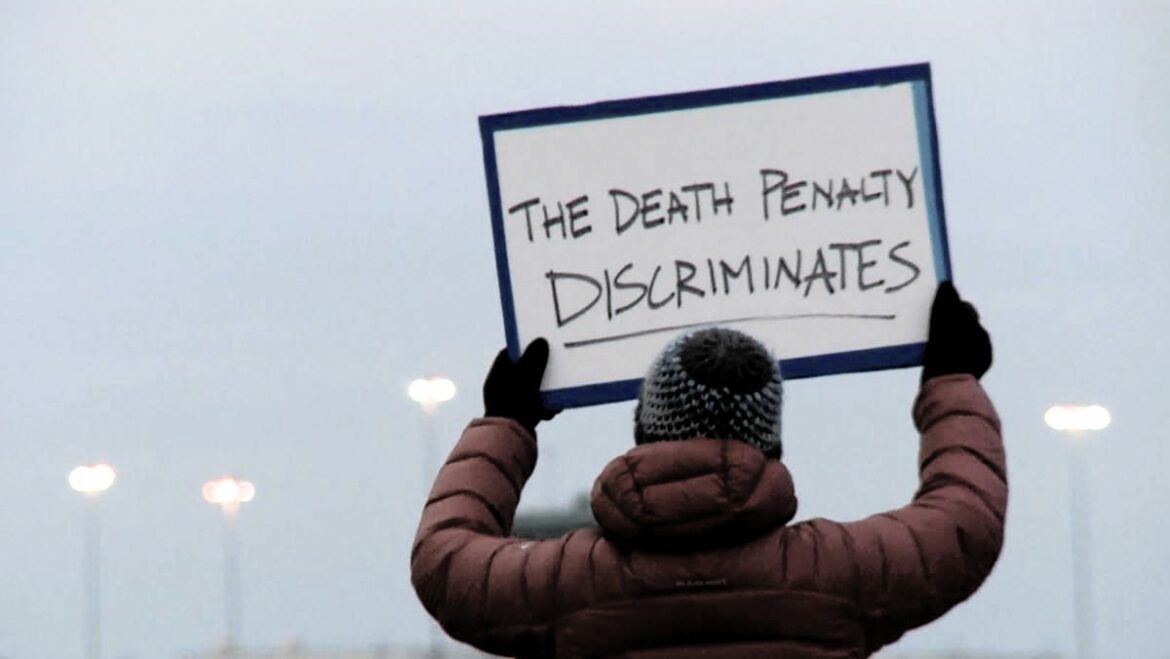WFIU podcast explores broader implications of death penalty executions carried out in 2020

Adam Pinsker WFIU-WTIU News
A new podcast from WFIU, Rush to Kill, analyzes the 13 executions that took place at a federal penitentiary in Indiana during the last six months of the Trump administration.
The eight-episode podcast, which began releasing weekly episodes Oct. 12, provides an in-depth look at the resumption of federal executions near the end of the Trump presidency. The episodes examine specific cases of some of the inmates who were executed and the legal battles that authorized the government to reinstate executions of death row prisoners. The podcast also looks at the impacts of performing the executions during the height of the COVID-19 pandemic.
The team at WFIU initiated the podcast to expand on its earlier coverage of executions carried out from July 2020 to January 2021 at United States Penitentiary in Terre Haute, Ind., where all federal executions are performed. The station is a dual licensee located on the campus of Indiana University in Bloomington, about 60 miles southeast of Terre Haute. The penitentiary is within its broadcast coverage area.
Back in 2020, WFIU multimedia journalist George Hale and reporter Adam Pinsker worked with a team of videographers and producers to cover executions at the facility. Given the pace of the executions that began July 14, 2020, they weren’t able to report in depth on each case. “We didn’t really have a whole lot of time to focus on any one individual case or catch our breath and figure out what was going on,” said Hale, host of Rush to Kill. “As soon as one was over, they would start another one the next week.”
After the last execution carried out during Trump’s presidency, on Jan. 16, 2021, a total of 13 death-row inmates had been killed. The acceleration of government-sanctioned killings was unprecedented, Hale said. Since the early 1960s, only four executions had been performed at the federal level.

The executions in Terre Haute were more of a national story than a local one, Hale said. “It has nothing to do with Indiana, really. “Indiana itself hasn’t had an execution since 2009. … They have the death penalty here, but it’s not really used.”
Rush to Kill is WFIU’s first attempt to reach a national audience with a politically oriented show, Hale said.
In 2021, NPR’s Story Lab Editorial Workshop selected WFIU’s proposal to expand on its coverage of the executions through its program supporting the development of new shows.
The WFIU team produced a pilot episode after working on their ideas and attending StoryLab workshops over nine months. It took another year to research and produce the remaining seven episodes.
The Story Lab training was instrumental for WFIU’s team to tell this story, said News Bureau Chief Sara Wittmeyer.
“We’ve never had the opportunity to do something like this, where we’ve been able to step back and really invest a lot of resources and investigate something of this magnitude,” Wittmeyer said.
“We were able to take our time and broaden it out to talk to people from all angles of this, [and] peel back in terms of what was the original intent of executions and perhaps how that’s changed,” she said.
Drawing connections, raising questions about death penalty policies
The first episode of Rush to Kill covers the execution of Daniel Lee, the first federal inmate to die under the death penalty in 2020, and how the U.S. Department of Justice convinced federal judges to approve their plan to resume executions during the pandemic. It also looks at how laws enacted decades ago by policymakers in power today, including President Biden, made these executions possible.
In addition, Rush to Kill revisits the history of the death penalty and examines how factors like race influence who is sentenced to the death penalty, raising questions about the moral fabric of a nation that executes its own citizens. Federal inmates on death row and family members of victims are among the interviewees.
The issues explored in Rush to Kill are relevant to the 2024 presidential election, Hale said. No federal executions have been performed since President Biden took office, but during his 2020 campaign Biden promised to abolish the federal death penalty. The president has yet to follow through on his pledge, Hale said.

Wittmeyer emphasized the contradictions of Biden’s campaign pledge to end the federal death penalty. When the podcast team dug into the records of his Senate career, especially his role supporting enactment of the Federal Violent Crime Control and Law Enforcement Act of 1994, Biden’s role in resumption of federal executions in 2020 was clear, she said. “Drawing those connections, that’s never been done, and just really informs the story in a more complete way.”
Rush to Kill doesn’t advocate for or against the death penalty, Hale said. It aims to point out flaws in the system. The Trump administration’s rush to execute so many prisoners in a short period of time allowed for many mistakes that wouldn’t have occurred under other circumstances.
“If we’re going to have a federal death penalty, we ought to try to make sure it’s administered fairly,” Hale said. “Meaning, for example, it shouldn’t disproportionally target people of color or other vulnerable populations. When it is carried out, it should be conducted as carefully and humanely as possible.”
Rush to Kill has garnered a lot of interest from local and national publications, which has helped with promotion, Wittmeyer said. Like other long-term projects WFIU has produced, she expects the podcast will be distributed nationally by PRX for stations to air as full-length episodes or shorter segments.
Correction: An earlier version of this article misidentified the first federal inmate executed in July 2020. His name was Daniel Lee, not Robert Lee.







